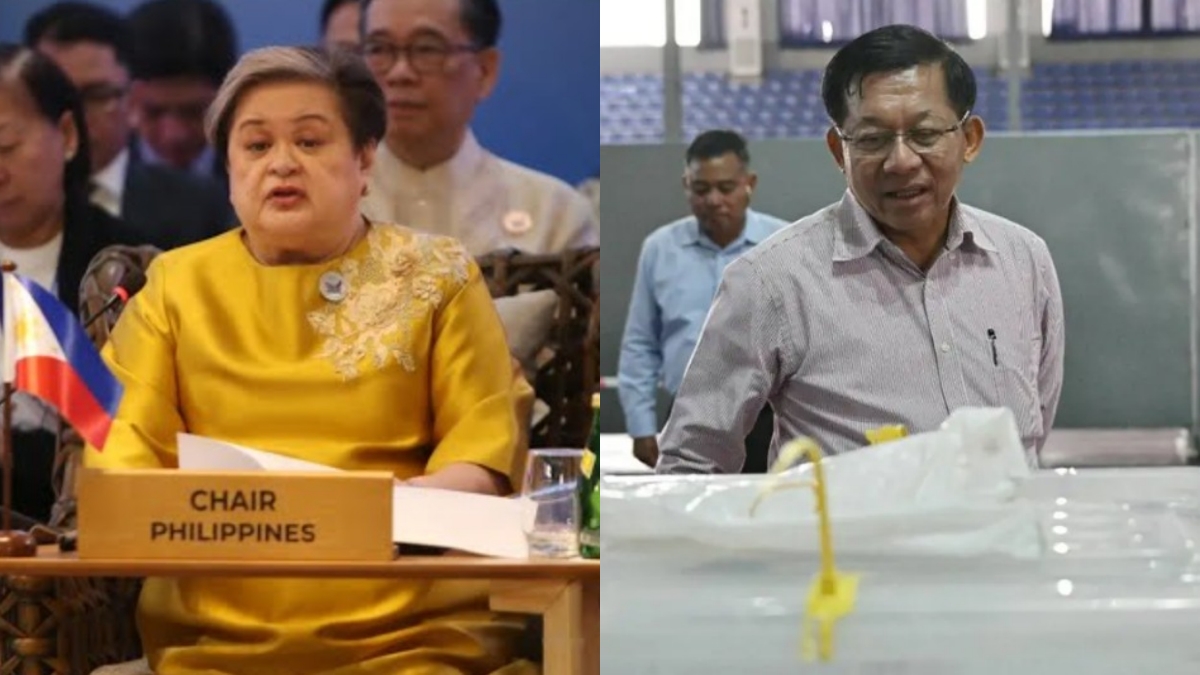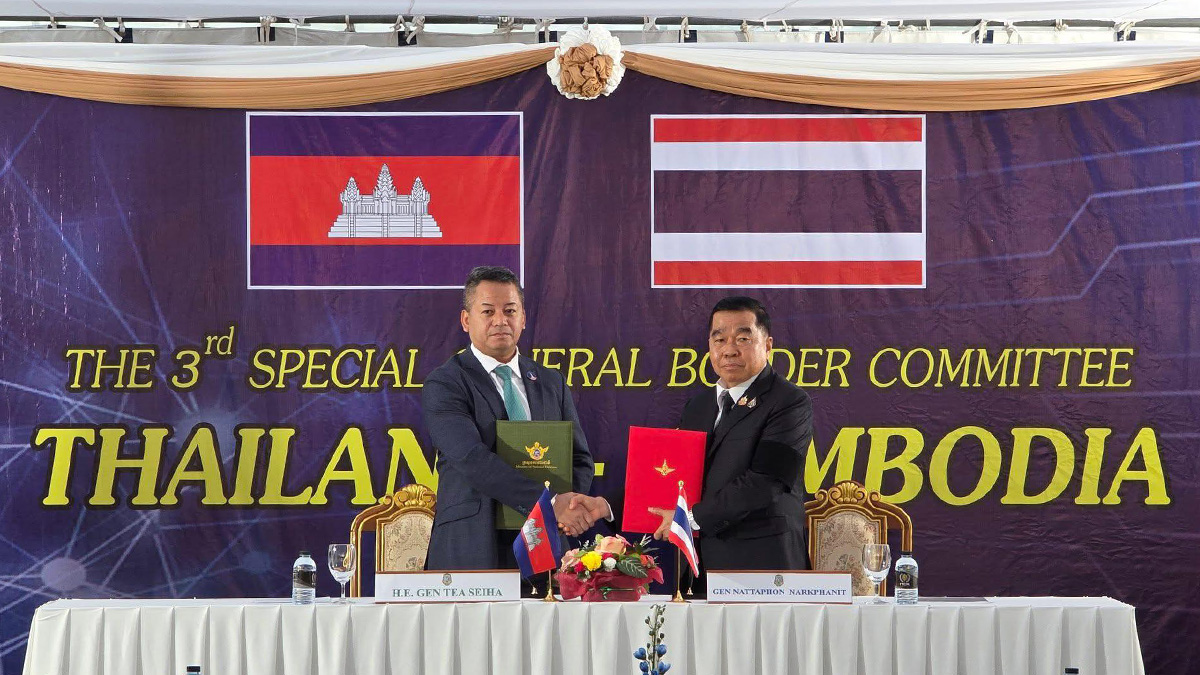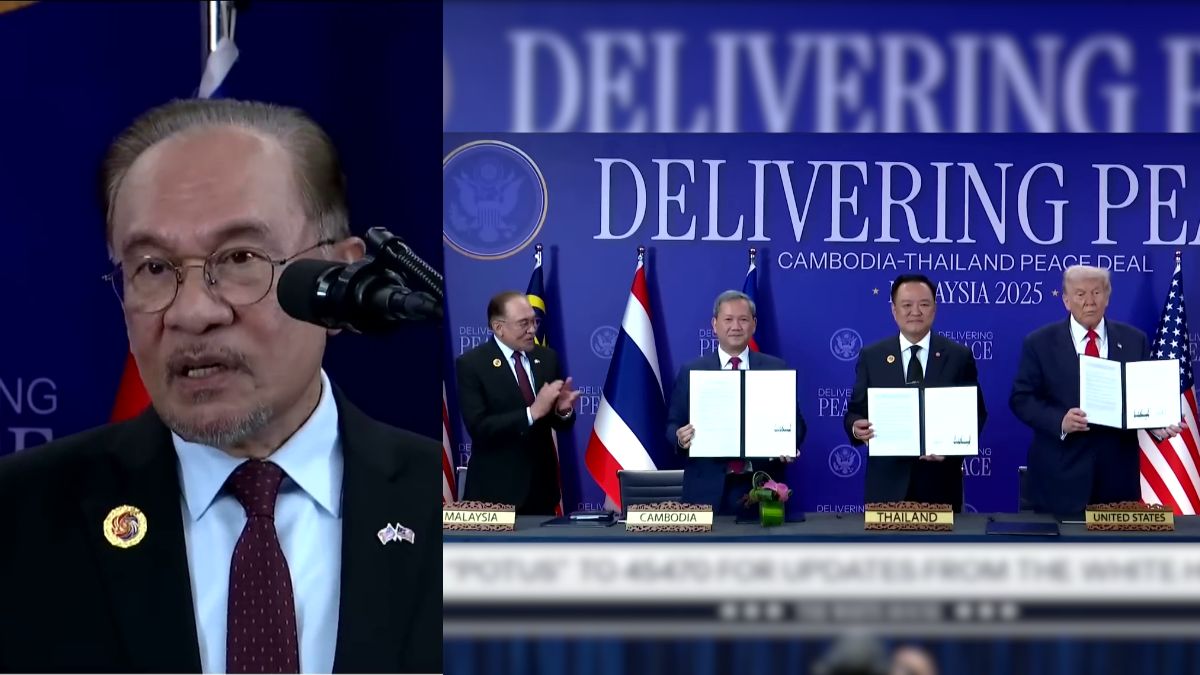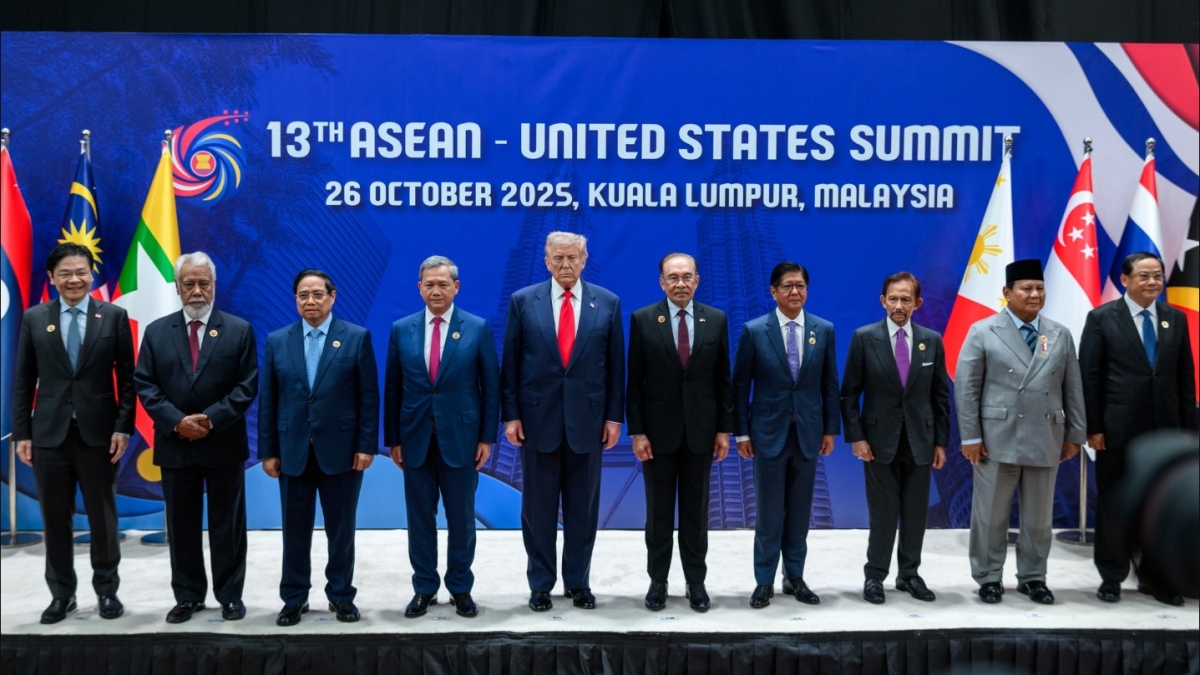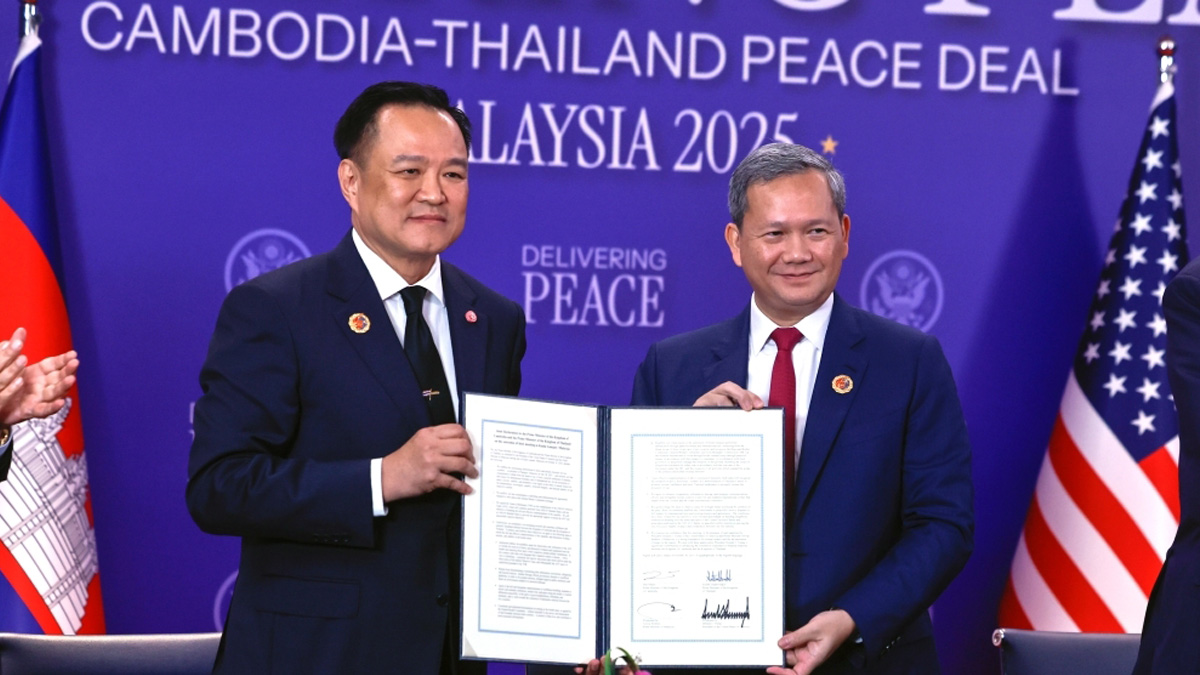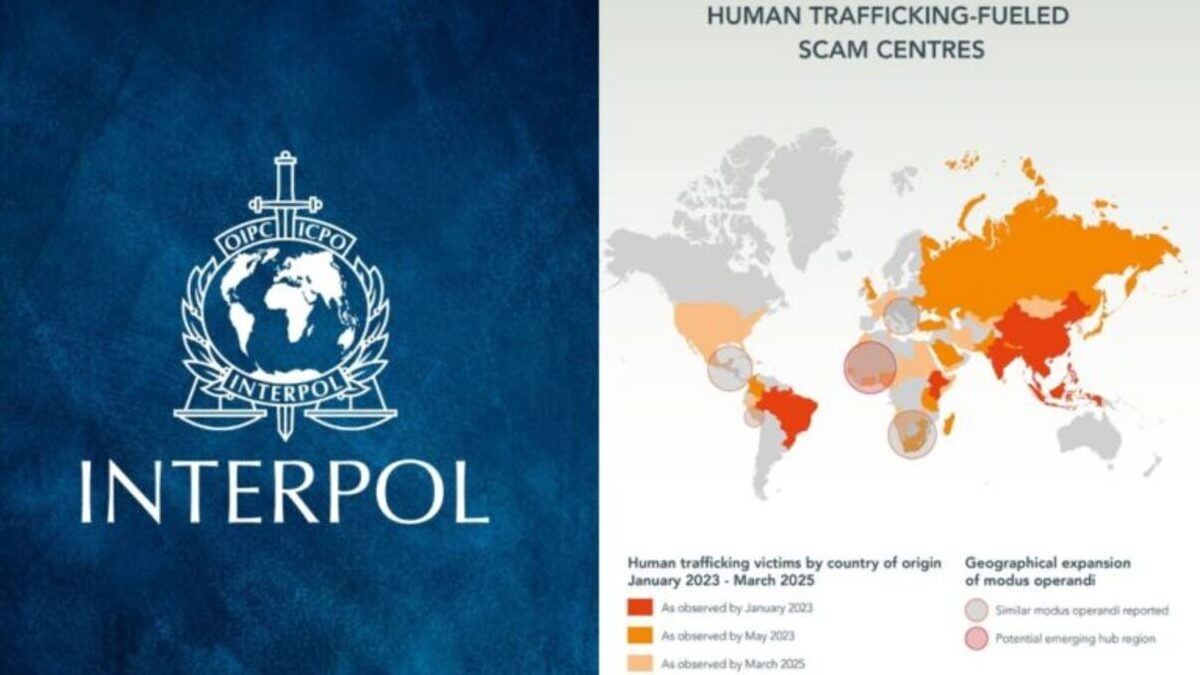Anwar Ibrahim urges ‘quiet engagement’ as ASEAN grapples with Myanmar crisis and shifting global order
At the 46th ASEAN Summit, Malaysia’s Prime Minister Anwar Ibrahim reaffirmed his commitment to “quiet engagement” on Myanmar, announced the first ASEAN-GCC-China Summit, and warned against unilateral economic measures threatening the rules-based order.
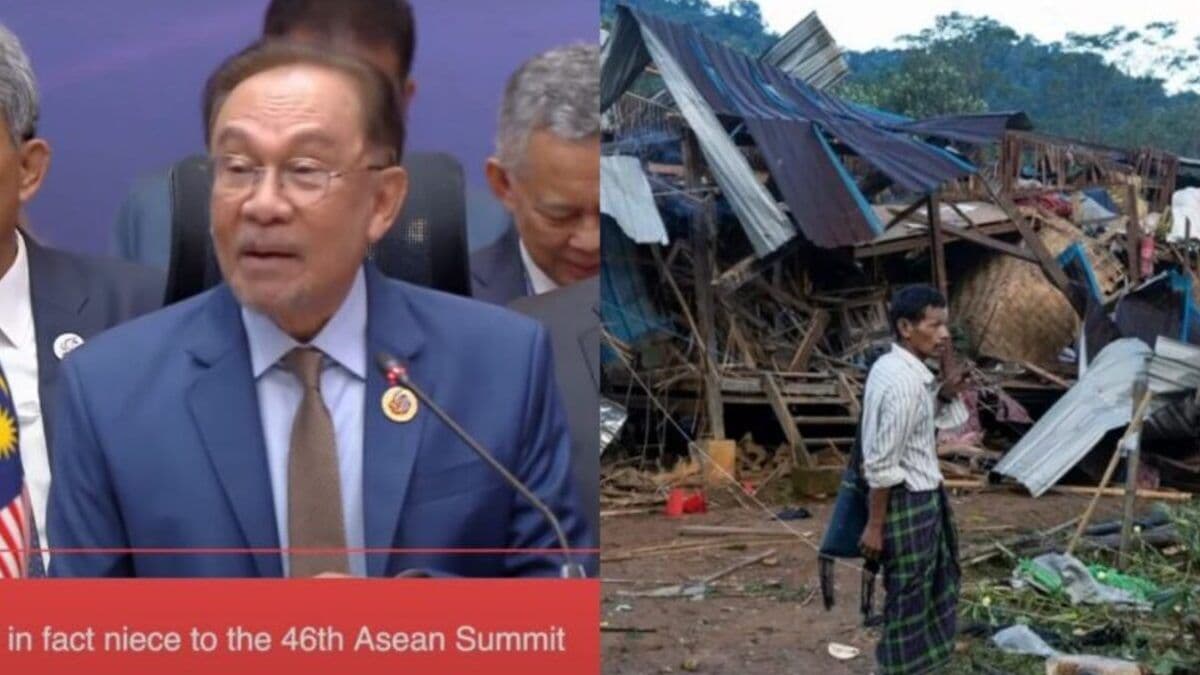
- Anwar Ibrahim reaffirmed Malaysia’s “quiet engagement” approach to Myanmar at the ASEAN Summit in Kuala Lumpur.
- ASEAN is considering appointing a permanent Special Envoy on Myanmar to ensure continuity in mediation.
- Anwar announced ASEAN’s first summit with the GCC and China, signalling a strategic adaptation to multipolar global dynamics.
Prime Minister Anwar Ibrahim reaffirmed Malaysia’s commitment to a peaceful resolution of the Myanmar crisis during the opening of the 46th ASEAN Summit on 26 May 2025 in Kuala Lumpur.
He stressed the importance of “quiet engagement”, suggesting that subtle diplomacy could achieve progress where overt pressure has failed.
“The steps may be small and the bridge may be fragile, but as they say, in matters of peace, even a fragile bridge is better than a widening gulf,” Anwar said.
Incremental ASEAN progress on Myanmar
Anwar highlighted that ASEAN has made incremental progress through the Informal Advisory Group formed under Malaysia’s 2025 ASEAN Chairmanship.
The group is chaired by former Thai Prime Minister Thaksin Shinawatra and includes senior regional figures. A previous meeting in Brunei Darussalam was attended by Sultan Hassanal Bolkiah, while a third session in Bangkok produced tangible outcomes.
The next meeting is expected to be hosted by Cambodia’s former Prime Minister Hun Sen.
Myanmar crisis remains a central test for ASEAN
ASEAN continues to face difficulties in resolving Myanmar’s political crisis following the 2021 military coup.
Efforts to implement the Five-Point Consensus (5PC), agreed in April 2021, have stalled largely because of the junta’s non-compliance. The consensus called for an end to violence, dialogue among all parties, humanitarian aid, appointment of an envoy, and access for the envoy.
Despite setbacks, Anwar initiated dialogue earlier this month with both junta leader Min Aung Hlaing and the opposition National Unity Government (NUG), breaking diplomatic deadlock by engaging both sides directly.
Proposal for a permanent ASEAN Special Envoy
Malaysia’s Foreign Minister Mohamad Hasan said on 25 May that ASEAN foreign ministers had agreed to consider appointing a permanent ASEAN Special Envoy on Myanmar.
The envoy, expected to serve a three-year term, would provide continuity in mediation, addressing past challenges where rotating envoys hindered sustained engagement.
According to Mohamad Hasan, a permanent envoy could ensure ASEAN maintains steady diplomatic pressure and inclusivity in dialogue.
Growing criticism of ASEAN’s approach
Calls for ASEAN to adopt a more assertive stance are mounting. On 19 May, former Malaysian Foreign Minister Saifuddin Abdullah and three ex-UN experts from the Special Advisory Council for Myanmar (SAC-M) urged Anwar to lead a new regional strategy.
They criticised his engagement with the junta, arguing that violence—including deadly airstrikes—has persisted despite ceasefire discussions.
The SAC-M condemned the bombing of a Sagaing school on 12 May, which killed 22 children and two teachers, as evidence that the junta is not acting in good faith.
Declaring the original 5PC obsolete, SAC-M proposed a “New 5PC” centred on inclusive dialogue, humanitarian access, democratic transition, constitutional reform, and accountability for war crimes.
Humanitarian toll in Myanmar
The humanitarian crisis in Myanmar remains severe. Since the 2021 coup, more than 3.5 million people have been displaced, according to monitoring groups.
Millions more face worsening poverty, compounded by the junta’s control over aid distribution during natural disasters. International agencies warn that malnutrition and healthcare shortages continue to rise across affected regions.
ASEAN’s limited capacity to enforce humanitarian access has been a persistent criticism from advocacy groups.
Anwar warns against erosion of rules-based order
Beyond Myanmar, Anwar used the summit to reaffirm ASEAN’s commitment to an open and rules-based order in the face of geopolitical and economic instability.
“For ASEAN, our peace, stability and prosperity have often depended on an open, inclusive, rules-based international order, anchored in the free flow of trade, capital and people,” he said.
“These foundations are now being dismantled under the force of arbitrary action.”
US tariffs and regional economic resilience
Anwar specifically cited unilateral tariffs imposed by the United States as a threat to the global trading system.
In response, ASEAN has created a Geo-economics Task Force to coordinate economic strategies. The prime minister described the task force as a timely move to safeguard regional resilience amid disruptions in global supply chains.
ASEAN-GCC-China Summit to signal strategic realignment
Anwar also announced ASEAN’s first-ever summit with the Gulf Cooperation Council (GCC) and China.
He described the initiative as a reflection of ASEAN’s capacity to adapt to a multipolar world by forging new partnerships.
“The summit manifests the successful reshaping of the matrix of partnership that speaks to today’s multipolar reality,” he said. “It symbolises the power of cohesiveness of regional blocs which no doubt would have positive impact on the world at large.”
Chairmanship theme: inclusivity and sustainability
Malaysia’s 2025 ASEAN Chairmanship is guided by the theme “Inclusivity and Sustainability”.
This marks Malaysia’s fifth time in the role, following earlier chairmanships in 1977, 1997, 2005 and 2015.
Anwar said the theme represents both a strategic vision and a values-based commitment to equitable growth and regional resilience.
“These principles must be embedded at the very heart of ASEAN’s agenda and vision,” he concluded. “Malaysia appreciates the support of all in ensuring that our Chairmanship advances this shared vision.”


